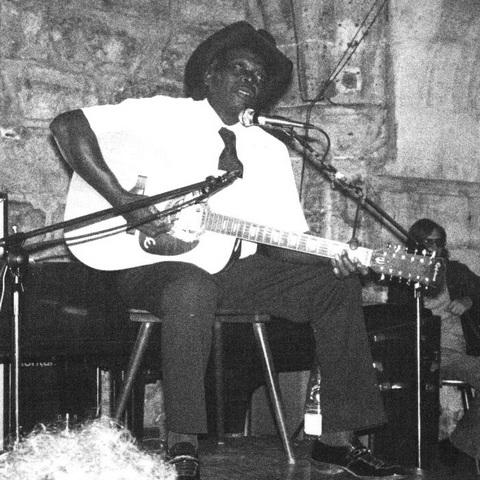Biography of Robert Pete Williams: The Bluesman of Angola Prison
Robert Pete Williams was a blues musician whose deeply personal songs and unique style made him one of the most distinctive voices in American blues history. Born on March 14, 1914, in Zachary, Louisiana, Williams lived a life marked by hardship, incarceration, and eventual recognition as a powerful folk-blues artist. His music, raw and unfiltered, reflected his life experiences, especially his time spent in prison. Though not widely known in mainstream circles, Robert Pete Williams remains a revered figure among blues enthusiasts for his emotive storytelling and original guitar work.
Early Life and Musical Beginnings
Robert Pete Williams was born into a poor family of sharecroppers in rural Louisiana. Like many African Americans in the South at the time, he grew up in the segregated and economically depressed Mississippi Delta region. Williams received little formal education and worked various jobs from an early age, including farming and laboring in sawmills.
He taught himself to play the guitar using makeshift instruments, often fashioned out of wire and other found materials. Williams was influenced by local blues musicians and absorbed the traditional sounds of the South, developing a style that was highly improvisational and deeply personal.
Incarceration and Musical Breakthrough
Williams’s life took a dramatic turn in 1956 when he was convicted of second-degree murder following a fatal shooting during a barroom altercation. He was sentenced to life in prison at Louisiana State Penitentiary, better known as Angola Prison.
It was in Angola that his music career began in earnest. While serving his sentence, Williams’s unique talent was discovered by Dr. Harry Oster, a folklorist and ethnomusicologist, and Richard Allen, a professor at Louisiana State University. They were conducting field recordings at the prison and were struck by Williams’s soulful voice and intensely autobiographical songs.
The recordings captured at Angola — songs like “Prisoner’s Talking Blues”, “I’ve Grown So Ugly”, and “Pardon Denied Again” — were unlike anything in the blues canon. His lyrics, drawn directly from his prison experience, gave listeners an unflinching view of life behind bars and the emotional turmoil it entailed.
These recordings led to widespread acclaim in folk music circles and brought national attention to Williams’s case. After advocacy from Oster and others, his sentence was eventually commuted, and he was released on parole in 1959.
Musical Career and Influence
Following his release, Williams began performing at folk festivals and coffeehouses across the United States, including notable appearances at the Newport Folk Festival and concerts in the Northeast and California. He later toured Europe as part of the American Folk Blues Festival in the 1960s, where he received strong acclaim.
Despite his growing recognition, Williams never achieved commercial stardom. He remained rooted in Louisiana, living a modest life and continuing to record music that was deeply personal and emotionally resonant.
Williams’s guitar playing was unconventional—he often used open tunings and played in a free, fluid rhythm that defied standard blues structures. His voice carried a haunting intensity, and his songs, filled with themes of suffering, injustice, and spiritual resilience, made a lasting impression on listeners.
Legacy
Robert Pete Williams died on December 31, 1980, in Rosedale, Louisiana, at the age of 66. Though his name is not as widely known as some of his contemporaries, his influence on the blues and folk revival scenes of the 1960s is significant.
He is remembered for:
- His autobiographical lyrics, which broke new ground in blues storytelling.
- His raw and unpolished guitar style, which has inspired later generations of blues musicians.
- His contributions to the folk-blues revival, helping to expand the understanding of blues as an art form deeply connected to personal and social realities.
Robert Pete Williams’s music remains a powerful testament to the resilience of the human spirit in the face of adversity. His recordings continue to be studied, reissued, and appreciated by blues aficionados around the world.
Notable Albums and Recordings:
- Angola Prisoner’s Blues (1959)
- Those Prison Blues (1960)
- Free Again (1961)
- Louisiana Blues (1966)
- Robert Pete Williams (1970)
Conclusion
Robert Pete Williams is a compelling example of how the blues can serve as a vehicle for raw, unfiltered human expression. His life, shaped by poverty, prison, and perseverance, produced music that stands apart in the history of the blues. His songs—deeply individual, haunting, and true—continue to resonate with anyone seeking music that speaks directly from the soul.

Comments are closed